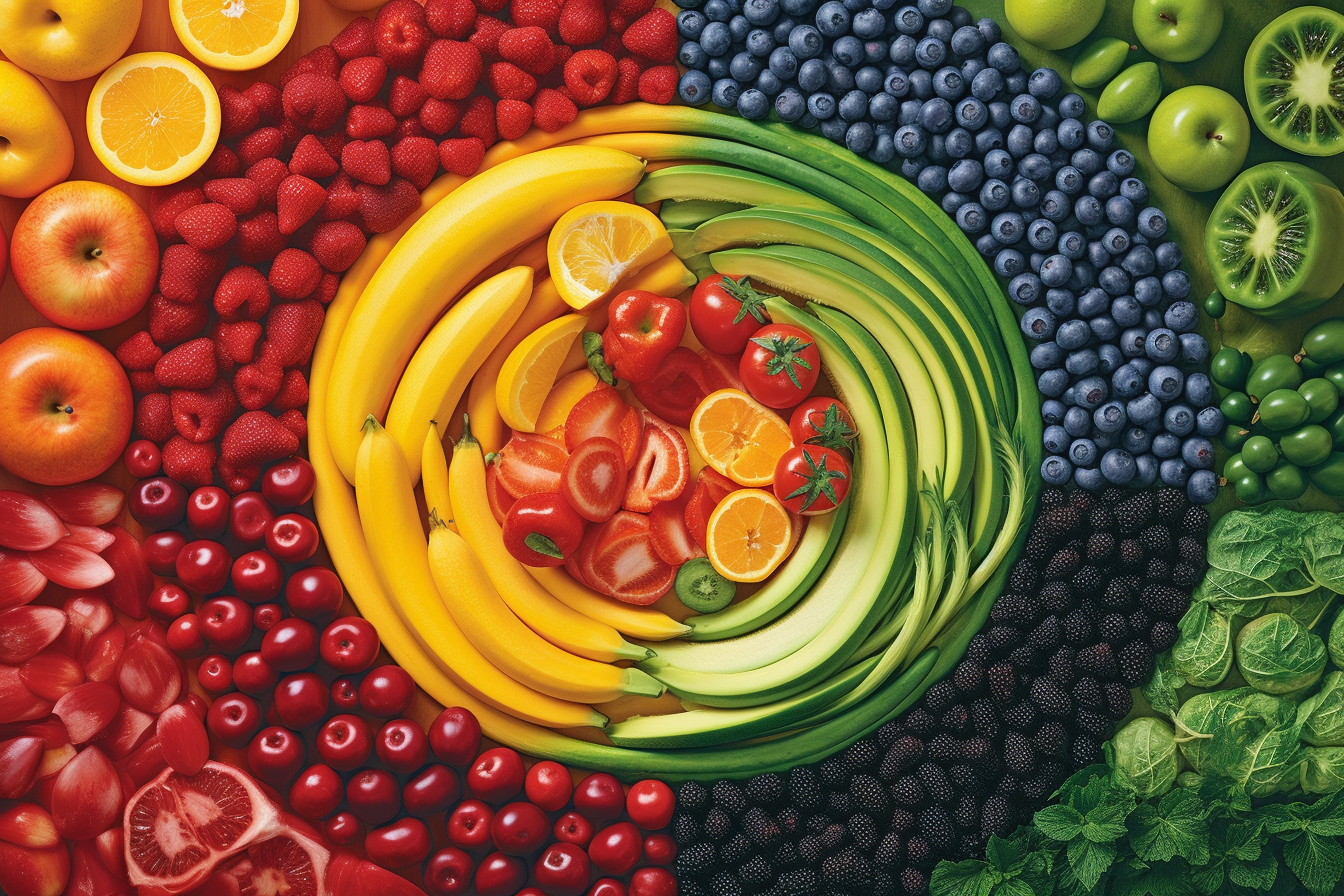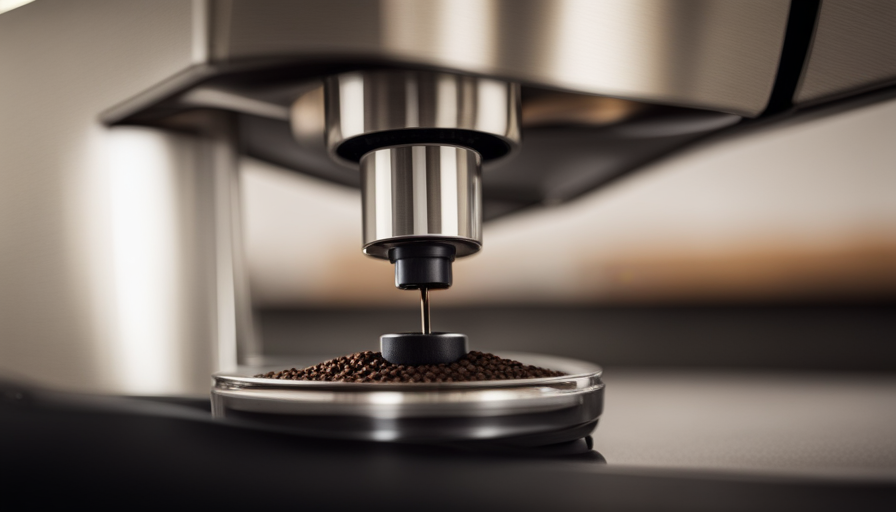Hello everyone! As a registered dietitian, my aim is to find ways to help my clients improve their eating habits. Eating raw food is a highly effective approach to achieve this goal. The popularity of raw food consumption has been steadily increasing, and for good reason – the health benefits it provides are impressive!
In this article, I’m going to explore how consuming raw foods can benefit your health.
Raw foods contain valuable nutrients that are often lost when cooked or processed. Eating raw fruits and vegetables provides essential vitamins, minerals, enzymes, antioxidants, phytonutrients, fiber and healthy fats that our bodies need in order to function properly. Plus, they’re low in calories yet packed with flavor – making them an ideal choice if you’re trying to lose weight or maintain a healthy lifestyle.
So let’s dive into all the amazing nutritional benefits of eating raw food!
Essential Vitamins And Minerals
Eating raw foods is an ideal way to ensure you’re getting essential vitamins and minerals in your diet. Unlike processed food, raw components like fruits, vegetables, whole grains and lean proteins contain natural sources of these vital nutrients.
Portion sizes are also important; consuming too much or too little could lead to deficiencies that can have negative effects on health.
It’s recommended to include a variety of produce in your meals for optimal nutrition. For instance, oranges provide vitamin C while dark leafy greens such as spinach offer iron. Additionally, salmon contains omega-3 fatty acids which are beneficial for the immune system.
Eating different types of healthy foods ensures the body receives multiple benefits from varied nutrient sources.
With proper portion control and including a range of fresh ingredients with each meal, it’s possible to get all the vitamins and minerals needed for good health.
Moving onto dietary fiber now, this component affects how long sugars remain in the bloodstream leading to improved digestion as well as reduced risk factors associated with numerous conditions…
Dietary Fiber
Eating a raw food diet has numerous dietary benefits, including high levels of dietary fiber.
Dietary fiber is an important macronutrient in maintaining health and preventing chronic diseases such as coronary heart disease, digestive issues, obesity, and type 2 diabetes.
Low carb diets are often low in dietary fiber due to the avoidance of whole grains that contain it; however, consuming a variety of fruits, vegetables, nuts and seeds can help meet daily requirements without compromising on taste or nutrition.
In addition to its various health benefits, increasing your intake of dietary fiber can have positive environmental impacts.
A diet rich in plant-based foods improves soil fertility by providing essential nutrients while also reducing water pollution from fertilizers used for animal agriculture.
Eating more local fruits and veggies contributes to reduced emissions associated with transport fuels which helps to slow climate change and protect our environment.
Dietary fiber plays an important role in overall health and well being and eating raw food is one way to ensure we get enough every day.
Additionally, choosing plants over animals for meals lowers our carbon footprint and helps keep our planet healthy.
With so many potential advantages from upping our nutrient game through natural sources like fresh produce and other plant-based items, there’s no reason not to give it a try!
Antioxidants are another component of a nutritious lifestyle…
Antioxidants
Antioxidants are key for optimal health and wellness; they can be found in many foods, making them an important part of a balanced, nutritious diet.
Sources of antioxidants can include fruits, vegetables, nuts, and even certain beverages.
- The health benefits of antioxidants include reducing inflammation, strengthening the immune system, and fighting free radicals that can cause cell damage.
Research has shown that antioxidant-rich foods can help reduce the risk of various diseases, including heart disease, cancer, Alzheimer’s, and obesity.
Eating a variety of fruits and vegetables is a great way to get your daily dose of antioxidants; other great sources include nuts, whole grains, and dark chocolate.
I recommend that my clients incorporate a variety of antioxidant-rich foods into their diets in order to reap the many health benefits these foods can provide.
Sources Of Antioxidants
It’s no secret that antioxidants are incredibly important to our health and wellbeing. Eating a diet rich in sources of antioxidants can help reduce inflammation, boost immunity, and protect your cells from damage.
Plant-based diets have long been recognized as great sources for these vital nutrients; but where should you turn if you want to get the most out of them? Let’s take a look at some key antioxidant sources!
Raw fruits and vegetables are fantastic sources of antioxidants, with dark leafy greens like kale and spinach being particularly high in nutrition. Berries such as blueberries, raspberries, blackberries – they all contain polyphenols which offer powerful protection against oxidative stress. Certain herbs like oregano also pack an antioxidant punch while adding flavor to meals! Raw nuts and seeds provide another excellent source of many vitamins and minerals as well as healthy fats.
Overall, eating raw food is an excellent way to benefit from all the essential antioxidants found within plant foods. Incorporating more fruit, veggies, herbs, nuts and seeds into your daily routine not only ensures that you’re getting plenty of natural nourishment – it’ll also leave you feeling energized throughout the day!
Health Benefits Of Antioxidants
In addition to the many sources of antioxidants available through a plant-based diet, there are also incredible health benefits associated with consuming these important nutrients.
Antioxidants help protect your cells from damage caused by oxidation and free radicals, reducing inflammation and boosting immunity.
They can also help improve overall cardiovascular health, reduce risk of certain cancers and slow down aging processes.
Low carb eating is another great way to get an antioxidant boost – foods like nuts, avocados, olives and dark chocolate are all packed full of beneficial vitamins and minerals that provide powerful antioxidant protection.
So whether you’re following a strict plant-based diet or just looking for ways to add extra nutrition into your daily routine, incorporating more naturally occurring antioxidants into your meals will offer plenty of long term health benefits!
Antioxidant-Rich Foods
When it comes to adding more antioxidants into your diet, there are a variety of delicious and nutritious foods that can help you do just that.
Foods like blueberries, spinach, kale, walnuts, dark chocolate and avocados are all excellent sources of antioxidants that can improve digestion and reduce cravings.
Incorporating these antioxidant-rich foods into your meals is an easy way to get the health benefits they offer including better immunity, improved cardiovascular health and healthy aging.
So don’t be afraid to experiment with different recipes – who knows what tasty treat you may discover along the way!
Healthy Fats
There’s no denying that fats are essential for our health. Not only do they provide energy, regulate hormones, and promote cell growth – but they also give us the opportunity to savor all of the flavors raw food has to offer!

But when it comes to fat intake, it’s important to be mindful of what kind you’re consuming. Here are some key points about healthy fats:
Saturated fats should be limited due to their potential links with heart disease risk factors;
Monounsaturated fats may help reduce cholesterol levels and lower your risk of certain diseases;
Polyunsaturated fats like omega-3 fatty acids have anti-inflammatory properties;
Trans fat is best avoided as much as possible since it can raise bad cholesterol levels in the body.
When selecting good sources of fat from a variety of raw foods, aim for those high in monounsaturated and polyunsaturated options while limiting saturated and trans fat intakes.
Now let’s move on to discussing enzymes and how they benefit your overall nutrition…
Enzymes
The good fats we discussed in the previous section are essential for a healthy diet, but there’s another element of raw food that can help us get the most nutrition out of our meals: enzymes.
Enzymes are proteins created by living organisms to speed up chemical reactions and they play a vital role when it comes to nutrient absorption from food.
Raw fermenting is one method used to increase enzyme activity, which involves exposing foods to bacteria or fungi cultures so they become naturally fermented over time without heat. This process increases their enzymatic content and makes them easier to digest.
In addition, some vegetables contain natural occurring enzymes like papain found in papaya and bromelain belonging to pineapple; these have anti-inflammatory properties as well as beneficial vitamins and minerals that may enhance nutrient absorption.
When eating raw fruits and veggies, it’s important to remember that they also contain phytonutrients with powerful antioxidant effects – compounds like carotenoids, flavonoids, anthocyanins and many more that are largely lost during cooking.
These nutrients protect cells from damage due to free radicals while boosting immunity and promoting overall health. By adding these superfoods into your daily diet you could be unlocking an array of nutritional benefits!
Phytonutrients
Eating raw foods has an abundance of nutritional benefits. One statistic to highlight the power of this type of eating is that studies have found that consuming more than 50% of your daily calories from raw food can lead to improved nutrient absorption and better overall health outcomes.
Raw foods provide a rich source of phytonutrients, which are compounds naturally produced by plants. Phytochemicals act as antioxidants in the body, and help fight off chronic diseases such as cancer and heart disease. They also promote alkalizing effects on our bodies, helping maintain healthy pH levels for optimal wellness. Plant-based proteins present in raw foods play an important role in muscle growth and repair. Additionally, they contain fiber which helps us feel full longer and aids digestion.
Raw food diets provide a wide variety of vitamins, minerals, enzymes and other essential nutrients required for proper functioning of the body’s systems. Eating fresh fruits and vegetables increases intake of these vital components while avoiding processed ingredients that tend to be stripped away during manufacturing processes.
As a registered dietitian/nutritionist I recommend including plenty of fresh produce into your meals every day!
By focusing on digestive health next we will learn how our gut plays a key role in absorbing all those wonderful nutrients from plant-based sources like fruits, veggies, legumes and grains!
Digestive Health
When it comes to our health, the digestive system is one of the most important. Eating raw foods can help support digestion and overall gut health by increasing beneficial bacteria in the digestive tract. This leads to better absorption of vital nutrients from food and improved regularity. Here’s a look at some key benefits:
| Gut Bacteria | Food Sensitivities | |
|---|---|---|
| Benefits | Increased Beneficial Bacteria | Reduced Intolerance Symptoms & Allergies |
| Side Effects | Improved Regularity & Digestion | Decreased Bloating & Gas Pain |
| Risk Factors | No Risk Factors Associated with Raw Foods | None Identified as Result of Eating Raw Foods |
Raw foods are full of vitamins and minerals that may be lost through cooking processes, like heat, light or oxygen exposure. These nutrient-dense foods also contain enzymes that aid in digestion, helping break down carbohydrates and protein for optimal energy production and utilization. By consuming more fresh fruits and vegetables, you’ll get plenty of dietary fiber which helps sweep away toxins from your body while supporting healthy bowel movements. Moreover, eating raw foods helps reduce common food sensitivities such as intolerance symptoms like bloating and gas pain associated with lactose or gluten intake. In addition to these great benefits, there are no risk factors associated with eating raw foods!
Therefore, if you want to improve your digestive health without any negative side effects then adding more raw plant-based options into your meals is an ideal solution. With this boost in nutrition, you will have increased energy levels throughout the day while feeling lighter due to reduced bloat and discomfort. Now let’s take a look at how consuming more raw foods can provide immune system support….
Immune System Support
Raw foods have incredible health benefits, especially when it comes to digestive health. But that’s not all they can do – raw food is also a great way to support your immune system!
While cooked and processed foods may offer some convenience and flavor, eating them regularly can leave you more vulnerable to infection and illness. On the other hand, choosing raw fruits, vegetables, nuts and seeds provide key nutrients that help keep your immunity strong such as:
- Vitamins A & C
- Zinc
- Omega 3 fatty acids
Plus, adding immune boosting herbs like garlic or ginger into salads or juicing raw fruits for an extra nutrient boost are easy ways to get an even bigger hit of immunity power. Finally, the many antioxidants found in raw foods can reduce inflammation which has been linked with a weakened immune system.
By taking simple steps towards a diet rich in fresh produce and raw juices we can give our bodies what it needs to protect us from sicknesses big and small. Plus, incorporating these nutritious items into meals will kickstart any journey towards heart health without sacrificing flavor.
Heart Health
Eating raw food can have a significant impact on heart health. To begin with, it helps to lower cholesterol levels and improve blood pressure due to its high fiber content which keeps the arteries clean.
Eating fresh fruits and vegetables is also beneficial because they are packed with antioxidants that reduce inflammation in your body. In addition, incorporating healthy fats such as avocados, walnuts, flaxseeds, and olive oil into your diet can help keep your heart functioning at an optimal level.
It’s important to monitor how much sodium you’re consuming when looking to maintain a healthy heart. Opt for low-sodium options like herbs and spices instead of salt when seasoning meals or look for foods labeled ‘low sodium’ when shopping at the grocery store.
Additionally, reducing processed snacks from your diet can provide numerous benefits for cardiovascular health since many of these convenience items contain preservatives or added sugars which can raise blood pressure if consumed in excess amount.
Swapping out unhealthy ingredients for nutrient-dense ones is one way to give your heart a boost. For example, using whole grains over refined grain products provides essential vitamins and minerals that work together to support overall wellbeing. Also opting for lean proteins such as wild caught fish will help meet daily protein requirements without compromising your waistline or artery health.
Moving forward towards maintaining balanced blood sugar regulation…
Blood Sugar Regulation
The heart isn’t the only organ that benefits from a diet rich in raw food. Eating more natural, unprocessed foods can also help keep blood sugar levels stable and promote healthy weight management.
Raw fruits and vegetables are lower in calories than their cooked counterparts, making them great for low carb diets to regulate your glycemic index and reduce spikes in glucose levels. Additionally, they contain beneficial fiber that helps slow down digestion and absorption of sugars into the bloodstream while keeping you feeling fuller longer.
Here are some examples:
- Spinach is high in magnesium which helps metabolize carbs into energy instead of fat storage.
- Berries such as strawberries, blueberries and raspberries are loaded with antioxidants like polyphenols and vitamins C & E that protect against diabetes-related complications caused by oxidative stress.
- Broccoli is an excellent source of dietary fiber filled with cancer fighting compounds like sulforaphane.
Avocados provide a substantial amount of monounsaturated fats which aids insulin sensitivity.
By making small changes to incorporate these nutrient-dense raw foods into our daily meals, we can make lasting improvements on how our body manages its metabolism, ultimately leading to better health overall – not just for our hearts but our entire bodies!
Moving forward, let’s look at what steps can be taken to maintain a healthy weight…
Weight Management
Eating raw food is an excellent way to manage your weight and stay healthy. Not only can it help you maintain a balanced diet, but due to its nutritional benefits, it can also help promote sustainable long-term weight management. I’m going to discuss two key strategies for managing your weight with a raw food diet: portion control and meal planning.
| Portion Control | Meal Planning | Benefits |
|---|---|---|
| Eat slowly | Plan ahead | Better digestion |
| Stick to recommended serving size | Make meals that are nutritionally balanced | Improved sleep quality & appetite control |
| Eat when hungry | Make use of leftovers | Reduced sugar cravings & overall calorie intake |
Portion control is essential when eating raw foods because the right amount will satisfy your hunger without overfeeding yourself. Eating slowly helps too – this gives your body time to recognize signs of fullness so that you don’t overeat. Additionally, sticking to the recommended servings sizes ensures that you’re getting all the nutrients needed while not consuming excess energy or calories.
Meal planning is also important when trying to achieve long-term results with a raw food diet. This involves taking the time to plan out meals in advance which are nutritionally balanced and packed with vitamins, minerals, fiber and other beneficial components such as antioxidants. With careful meal planning you’ll be able make use of leftovers, thereby reducing waste and saving money at the same time! As a result you’ll have more energy throughout the day, better sleep quality and improved appetite control – plus reduced sugar cravings!
Overall there’s no doubt about it; if done correctly, following a raw food diet has many impressive health benefits including aiding weight management by promoting portion control and wise meal planning techniques. The next section looks into how raw foods possess anti-inflammatory properties…
Anti-Inflammatory Properties
Moving on from our discussion about weight management, let’s take a journey back in time and explore the anti-inflammatory properties of raw food. Eating uncooked or lightly cooked foods can be beneficial to reducing inflammation in your body which is key for maintaining health.
Raw foods offer several advantages that make them attractive to those looking to reduce inflammation:
- Nutrient Density: Raw foods are packed with essential vitamins and minerals that help support bodily functions and maintain optimal health.
- Lower Sugar Content: Many raw foods have naturally occurring sugars which are healthier than refined, processed sugars found in some cooked dishes. This means consuming fewer empty calories and reduced risk of type 2 diabetes.
- Variety: There is an abundance of options when it comes to incorporating raw foods into one’s diet – fruits, vegetables, nuts, grains and legumes all provide nutrition while avoiding potential food sensitivities caused by heating methods like frying or grilling.
These benefits combined create an ideal environment for reducing inflammation within the body, aiding digestion and promoting overall wellbeing. With this newfound knowledge at hand we step closer towards improved mood and mental clarity through eating right!
Improved Mood And Mental Clarity
I’m sure many of you have heard about the nutritional benefits of raw food.
Eating a raw diet can help to boost your energy levels, increase your mental focus, and reduce your anxiety.
I’m here to tell you that it’s true – adding more raw food to your diet can make a big difference to your mood and mental clarity.
Just think – you’ll be able to think more clearly and be more productive with your day, all while feeling happier and more relaxed!
I’m confident that if you start making healthier choices and incorporating more raw food into your meals, you’ll start to feel the benefits in no time.
So why not give it a try and start your journey to improved mood and mental clarity today?
Boosted Energy Levels
Eating raw food has been linked to improved mood and mental clarity.
Are you feeling foggy or sluggish?
Eating more raw, nutritious foods could be the key to boosting your energy levels!
Raw fruits and vegetables contain vital vitamins and minerals that help keep your blood sugar balanced and provide essential fuel for your body’s cells.
This balance supports better focus, concentration, and memory.
Plus, eating plenty of fiber-rich produce can also slow digestion which helps stabilize blood sugar for longer periods of time.
All these factors work together to bolster overall mental clarity so you can take on the day with confidence.
So if you’re looking for a natural way to increase your energy levels, give raw foods a try – it just might make all the difference in how you feel!
Increased Mental Focus
When it comes to improved mood and mental clarity, increasing your mental focus is an important part of the equation.
By reducing stress levels with regular exercise and a healthy diet that includes plenty of raw foods, you can help keep your mind sharp and ready for anything.
Eating more raw fruits and vegetables will also provide essential vitamins and minerals that work together to enhance concentration, memory, and overall cognitive performance.
So if you want to stay on top of your game mentally, make sure to incorporate nutritious whole food into your meals – it could be just what you need for increased focus!
Reduced Anxiety
Having reduced anxiety is an important part of improving your mood and mental clarity.
When we’re feeling stressed out or overwhelmed, our focus can be thrown off track.
To reduce feelings of stress, it’s essential to practice healthy habits such as deep breathing exercises and spending time outdoors in nature.
Eating nutrient-rich foods like whole grains, lean proteins, and plenty of fruits and vegetables can support the body by providing nourishment for a balanced emotional state.
It may also help to minimize cravings for unhealthy comfort foods that could lead to emotional eating.
By focusing on healthier dietary choices more often, you’ll likely feel calmer and have better control over your emotions.
Increased Energy Levels
Eating raw food has many benefits, and one of the most significant ones is increased energy levels.
Raw foods are packed with vitamins, minerals and other essential nutrients that help to sustain your body’s natural energy production throughout the day.
Eating a diet consisting mostly of uncooked fruits and vegetables can help reduce fatigue, improve sleep quality and give you more pep in your step.
Your body needs key micronutrients such as vitamin B6, folate and iron to fuel its metabolic processes efficiently.
These nutrients are usually found in abundance in raw fruits and veggies like spinach, kale, apples, bananas and oranges.
Because they haven’t been cooked or processed in any way, these nutrient-dense foods keep their full nutritional value so you get maximum benefit from them.
The right combination of macronutrients (e.g., healthy fats) along with micronutrients (vitamins/minerals) also helps make sure your metabolism works optimally for sustained energy throughout the day.
So incorporating plenty of fresh produce into your diet can significantly boost your overall health by providing better nutrition than what would be otherwise possible through cooked meals alone.
This leads us on to discussing the next big benefit – better skin health!
Better Skin Health
In addition to the increased energy levels that come with a diet full of raw foods, there are other potential benefits associated with this dietary trend.
Eating more raw food can also help promote better skin health.
Many cleansing habits and dietary trends focus on eating less processed items, which is an important part of promoting healthy skin.
The vitamins and minerals found in fresh fruits and vegetables can help provide essential nutrients for your skin cells, helping them stay nourished and hydrated.
Additionally, antioxidants like vitamin C can boost collagen production, improving elasticity and reducing wrinkles over time.
Replacing some cooked meals with fresh salads or smoothies made from raw ingredients can be beneficial for keeping your skin looking its best.
Raw foods also contain fewer artificial colors and preservatives than heavily processed packaged items.
This means they’re much less likely to cause inflammation or breakouts — two common side effects of consuming unhealthy ingredients.
As you seek out healthier options for meals throughout the day, keep in mind that choosing more natural alternatives may have positive impacts on both your physical and mental wellbeing.
Frequently Asked Questions
Is It Safe To Eat A Raw Food Diet?
When it comes to the safety of a raw food diet, opinions vary. There are pros and cons associated with this type of eating plan that should be considered before making any major dietary changes.
On one hand, proponents point out that many processed foods contain additives and preservatives which can have long-term health implications. Additionally, some argue that consuming only raw fruits and vegetables allows you to get more of their natural vitamins and minerals compared to cooked or processed options.
However, there is still debate among registered dietitians/nutritionists about the potential risks associated with an exclusively raw food diet since it may not provide all essential nutrients in sufficient quantities needed for good health.
Ultimately, if considering such an approach to nutrition, it’s important to consult with your healthcare provider first to ensure your individual needs are being met safely.
How Do I Transition To A Raw Food Diet?
Making the transition to a raw food diet can be an exciting adventure for your health and lifestyle. The emotional benefits of eating more fresh fruits, vegetables, nuts, seeds, and whole grains are numerous.
However, it is important to make sure you make this shift safely and gradually in order to get used to all the changes that come with this type of dietary change.
To start off making the switch easier on yourself, try replacing one meal per day with something raw. As you become comfortable with this new way of eating, increase the number of meals replaced until you reach your desired goal.
Make sure to consult with a registered dietitian or nutritionist if you have any questions or concerns about transitioning into a raw food diet.
Can I Combine Raw Foods And Cooked Foods In The Same Diet?
You can have your cake and eat it too when considering the benefits of raw food.
Combining both cooked and uncooked meals in a diet is totally doable, so don’t feel restricted to one or the other!
Eating out at restaurants doesn’t have to be off limits either – you just need to make smart decisions about what’s on your plate.
Try incorporating some delicious raw recipes into your meal plan for more variety and nutrition.
With these simple steps, you’ll reap all the nutritional benefits of raw foods while still enjoying tasty cooked dishes at home or out.
Are There Any Potential Risks Associated With A Raw Food Diet?
When it comes to the potential risks associated with a raw food diet, there are a few things to consider.
Raw foods often contain enzymes that may be destroyed by cooking, and therefore can provide health benefits for those who choose to include them in their diets.
However, you should always make sure your food is prepared and stored safely so as to avoid any issues related to foodborne illness.
Additionally, if you do decide to follow a strictly raw food diet, ensure that you’re getting all of the necessary vitamins and minerals from other sources such as fortified foods or supplements.
Is It Necessary To Take Supplements When Eating A Raw Food Diet?
Have you ever considered eating a raw food diet?
It can provide numerous nutritional benefits and is increasingly becoming popular.
But one question that comes up frequently is whether or not it’s necessary to take supplements when following this type of diet.
Well, the simple answer is no – as long as you’re eating a balanced variety of raw snacks and meals throughout the day, your body should be able get all the nutrients it needs without any additional supplementation.
However, if you notice any deficiencies in your nutrient balance then consulting with a registered dietitian/nutritionist may help determine what kind of supplement would best suit your individual needs.
Conclusion
The raw food diet has many potential health benefits, however there are some risks associated with it as well. For individuals considering transitioning to a raw food diet, I recommend consulting with a registered dietitian or nutritionist for personalized guidance and advice tailored towards their individual needs.
It is important to remember that dietary changes can be intimidating at first, but taking small steps in the right direction can lead to big leaps of progress down the line. As they say, Rome wasn’t built in a day – so don’t expect your transition to happen overnight!
With careful planning and consideration you’ll be on the path to improved health in no time.










